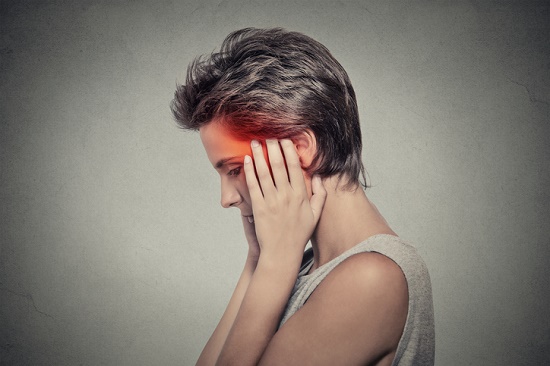
While it’s true that there is at this time no scientifically-verified method to cure tinnitus, researchers are hard at work to uncover one. In the meantime, a variety of tinnitus therapy options exist that can offer significant relief.
Look at it in this way. If you have a headache, you take Tylenol in spite of the fact that it doesn’t “cure” your headache. Pain relievers merely make the pain fade into the background to ensure that it doesn’t affect your day. Likewise, tinnitus therapy can help decrease the intensity of symptoms so that your tinnitus has negligible affect on your daily life.
Considering everyone responds to tinnitus in a different way, there’s no one-size-fits-all treatment. You’ll need to work with your provider to find the approach that is best suited for you.
Here are some of those options.
Tinnitus Treatment Solutions
If you are suffering from tinnitus, you’ll want to examine the following treatment options with your hearing care or healthcare professional.
Treatment of the underlying ailment
Whereas most instances of tinnitus are not curable—and are a consequence of hearing loss or other non-reversible damage—certain cases are the consequence of an underlying physical condition. You’ll want to rule these out prior to seeking other treatment modalities.
Potential physical causes of tinnitus include jaw joint issues (temporomandibular joint, or TMJ dysfunction), excessive earwax or other obstructions in the ear canal, head and neck injuries, and responses to certain medications.
General Well-Being
The severity of tinnitus symptoms can fluctuate depending on all-around health. Taking steps to boost general health is, therefore, something tinnitus sufferers can get started on immediately to reduce the severity of symptoms.
Every patient is different, and what works for someone else might not work for you. The purpose is to experiment with various activities to discover what works best.
Strategies that have displayed promise include instituting a healthy diet, getting plenty of physical exercise, meditating, and engaging in activities like bicycling, which can cover up the sounds of tinnitus.
Hearing Aids
Tinnitus is often linked to hearing loss and hearing damage. In response to reduced stimulation from external sound, the brain undergoes maladaptive changes that lead to the perception of tinnitus.
By increasing the magnitude of external sound, hearing aids can help mask the tinnitus, making the sounds of tinnitus less conspicuous. Hearing aids also supply increased sound stimulation to the brain, which is considered to be neurologically favorable.
Sound Therapies
Sound therapy is simply the delivery of sound in the form of white noise, pink noise, or nature sounds to reduce the perceived burden or intensity of tinnitus.
Sound therapy operates by covering up the tinnitus and additionally by retraining the brain to reclassify the sounds of tinnitus as insignificant. This twin effect can minimize the short and long-term severity of tinnitus.
Sound therapy can be provided through special tabletop devices, but also through portable media devices and even through hearing aids. Medical-quality sound therapy uses customized sounds that match the pitch of the individual’s tinnitus for optimal results.
Behavioral Therapies
Recall that tinnitus is the sense of sound in the brain when no external sound is present. The condition is, therefore, very subjective, and each person responds a unique way.
In fact, whether or not the individual perceives tinnitus as debilitating or minor is predominantly as a consequence of psychological reactions and not to the loudness or pitch of the tinnitus. That’s why cognitive/behavioral approaches to tinnitus therapy have been shown to be very effective.
A number of techniques are available, including Mindfulness-Based-Stress-Reduction (MBSR) and Tinnitus-Retraining-Therapy (TRT), which integrates cognitive-behavioral-therapy with sound therapy.
Drug Therapy
While there are no current FDA-approved medications for tinnitus, antianxiety and antidepressant medications are commonly utilized to manage the behavioral responses to tinnitus. These drugs do not appear to influence tinnitus itself, but may provide much-needed relief if thought to be appropriate by your physician.
Experimental Therapy
The search for a tinnitus cure is continuous. A number of experimental therapies are in development or testing and new methods become available each year. If your tinnitus is significant, and you’ve obtained very little benefit from existing therapies, you may be a candidate for one of these leading edge treatment options.
Check out the Experimental Therapies webpage at the American Tinnitus Association website for additional details.
Obtain Relief For Your Tinnitus
Tinnitus is currently being aggressively investigated, with brand new findings and potential treatment methods reported every year. Even now, there are several encouraging treatments that, while not offering a cure, can supply appreciable relief. You owe it to yourself to take a look at these options, stay positive and persistent in your tinnitus care, and work together with your provider to adjust your treatment plan for the greatest results.
